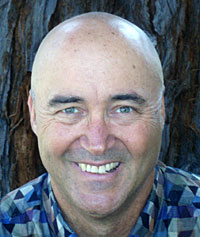| | Homeopathy: Health and Healing in the Twenty-First Century | |
- Futurists commonly predict impressive high-tech developments in medicine that await us in twenty-first century. The new computerized diagnostic equipment, the emerging uses of lasers in treatment, and the pharmacological advances due to genetic engineering are all expected to make contemporary medicine seem relatively primitive.
- Each new technology, however, brings with it new problems and does not necessarily solve old ones. For instance, despite the many advances in medicl testing, most medical tests are accurate only 90% of the time. Thus, if a physician recommends a battery of 20 medical tests, only 36% of the patients would receive accurate results(1).
- And medical treatment may not be as effective or as safe as we might like, hope, or expect. One study of patients in a respected Boston university hospital discovered that over one-third of the patients were admitted for iatrogenic (doctor-induced) disease(2) (such statistics are excepted to be even higher in hospitals not affiliated with a medical school).
- Futurists often ignore the problems of present technologies and assume that new technologies will solve these problems. It is likely, even obvious, that twenty-first century medicine will not only have a high-tech side, but also be a "high-natural" side to medicine's future.
- As the result of new understandings of the body and mind and as a result of growing popularity in the self-care, wellness, and alternative health movements, futurists are now having to rewrite the future...or at least their thoughts about it.
The High-Natural Revolution in Medicine
- New research from neurology, internal medicine, and psychiatry has begun to help us better understand and map the links between specific psychological states and certain diseases. The new field of "psychoneuroimmunology" has emerged, and its implications for helping us understand disease processes and develop potentially valuable therapeutic approaches are tremendous.
- These new understandings of body-mind connections will have significant impact of medical care. Not only will this new knowledge provide insight into how illness develops, but it will also suggest new or even very old strategies for treating acute and chronic conditions.
- The high-natural revolution in medicine is already taking place. Self-care practices have grown considerably in the past decade and even faster growth is projected for the next decade. Market research on the three most popular at-home medical diagnostic tests are expected to grow by nearly 300 percent from 1984 to 1990.(3) A University of Chicago study found that those people who engage in self-care practices spent 26 percent less on hospital bills and 19 percent less on physicians' services.(4) Since the cost of health care has been and will continue to be a serious problem, self-care will not only be important for encouraging better health but also for saving money.
Wellness programs at corporations have also experienced impressive growth in the past five years. In 1982 only about five percent of employers had some kind of wellness program, but by 1986, 36 percent had such a program. A group benefits survey of 1,418 employers found that an impressive 49 percent of them have some form of health promotion programming.(5) Even hospitals are developing wellness programs, both for their patients and for their community.
 | DANA ULLMAN, MPH, is one of America's leading advocates for homeopathy. He has authored 10 books, including ...more |
|
|
Popular Related Articles/Areas
Popular & Related Products
Popular & Featured Events
Dimensions of Wellness
|
|